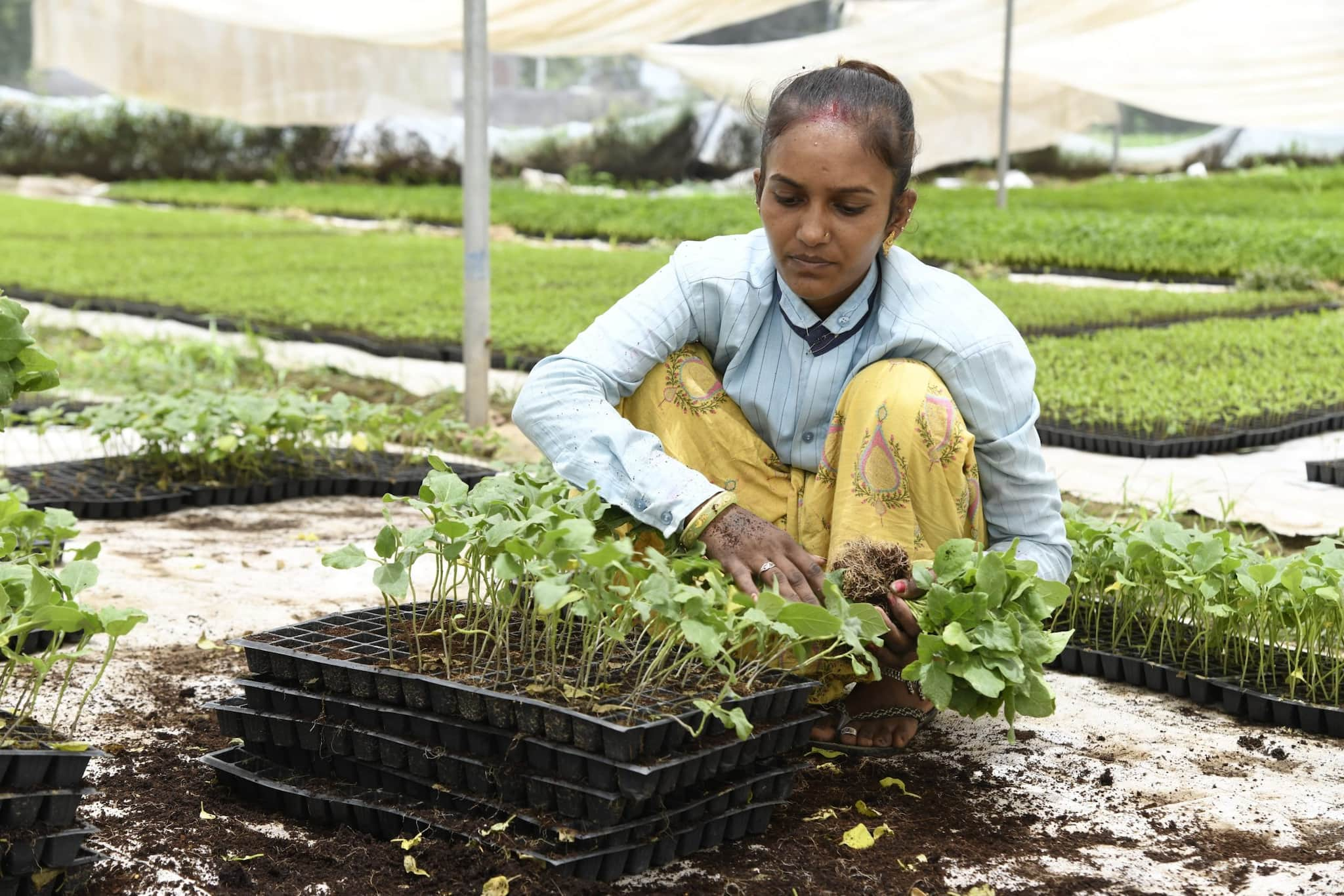Last updated:
Ishwarbhai Koli Patel of Dholaka has taken a turnover of 60-70 lakhs by adopting an innovative approach to raising and cultivating. The subsidy and training of the Horticulture Department has given him this success.
Ahmedabad: In the Dholka diocese of Ahmedabad district, a successful farmer Ishwarbhai (Chikabhai) Koli Patel has made a significant contribution to agricultural development through his economic growth through the business of raising. He has succeeded in delivering quality seedlings to the far-flung farmers. Under the guidance of the Horticulture Department, Ishwarbhai has been trained with a subsidy of about Rs 3 lakh. They have a wide range of vegetables, including chilli, tomato, eggplant, and hiring land in Dholaka.
His vision and innovative approach is behind the success of Ishwarbhai. He realized that delivering Dhru to one place to another, especially at a long distance, was a major challenge. To solve this problem, he prepared a special type of stray (tray) and strong plastic carats. The system can be transported for a long distance without any damage to the seedlings. Due to the quality and convenience of Ishwarbhai’s seedlings, today, his Dhura is not limited to Dholaka only to Botad and Surendranagar districts as well as many villages in Saurashtra. They grow about 40 to 5 lakh seedlings every year and provide farmers with farmers. Through the sale of these seedlings, they get a turnover of an estimated Rs 60 to 70 lakh a year, which is witnessing their hard work and skill.

The Horticulture Department has been an important contribution to this successful journey of Ishwarbhai. He has been given a subsidy of about Rs 2.75 lakh by the Horticulture Department. In addition, by participating in the special training organized by the Horticulture Department, he gained knowledge of modern upbringing, disease-livelihood control and business management. It is only because of this training and government assistance that they have been able to develop their business on such a large scale.

Ishwarbhai states that “instead of planting vegetable seeds like tomato, chilli, eggplant, vegetables are planted directly. Often, 40% of seeds do not grow in growing vegetables, which is why plants do not grow. Need a nursery. “
Ishwarabhai has raised plants that are free from clay diseases, planting vegetable seeds in cocopitis and vermiculite, avoiding the use of soil. Sowing these plants in farming has given farmers a huge crop of vegetables, and Arvindbhai is also making good income. The cocopit is made of dry coconut chop and the vermiculite is a mineral found in the soil.
Ahmedabad, Gujarat
June 03, 2025 3:53 PM IST









